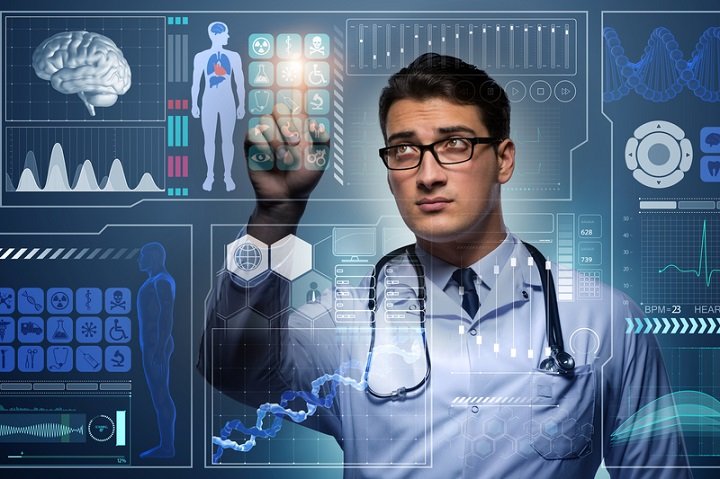- Homepage
- Latest Technology
- Wearable health technology for personalized healthcare insights
Wearable health technology for personalized healthcare insights
What is Health technology for personalized?

- Genetic information: Knowing your DNA can help determine how you might respond to certain medications.
- Wearable devices: These gadgets, like smartwatches, can track your heart rate, sleep patterns, and activity levels.
- Mobile health apps: These apps can remind you to take medication or help you manage chronic diseases like diabetes.
These technologies help create a more customized healthcare experience, making it easier for people to understand their health and make informed decisions.
Why is Personalized Health Technology Important?
Personalized health technology is important for several reasons:
1. Better Treatment Outcomes
When doctors have detailed information about a patient, they can choose the best treatment for that individual. For example, if a patient has a specific gene that affects how they metabolize a drug, doctors can prescribe the right dosage or even choose a different medication that works better.
2. Increased Patient Engagement
Personalized health technologies often encourage patients to take an active role in their healthcare. With wearable devices and health apps, people can monitor their own health and see how their lifestyle choices impact their well-being. This involvement can lead to better health outcomes.
3. Prevention of Diseases and Health technology for personalized
With personalized health technology, it’s possible to identify risks before they become serious problems. For example, genetic testing can reveal whether someone is at a higher risk for certain diseases, allowing for early intervention and preventive care.
4. Cost Efficiency
By focusing on individualized treatments, healthcare systems can reduce costs. When patients receive the right treatment from the start, there’s less chance of expensive complications or unnecessary procedures.
Types of Personalized Health Technologies
There are many different types of health technology designed for personalized care. Here are some of the most common ones:
Genetic Testing
Genetic testing can help identify predispositions to certain health conditions. For example, tests can reveal if someone is more likely to develop cancer or heart disease. This information allows for proactive measures, such as lifestyle changes or increased screening.
Telemedicine
Telemedicine uses technology to provide healthcare remotely. Patients can have virtual appointments with doctors, which makes healthcare more accessible, especially for those living in remote areas. This flexibility allows for personalized care without the need for travel.
Wearable Health Devices
Wearables like Fitbits or Apple Watches track various health metrics, including heart rate, steps taken, and sleep quality. T
Mobile Health Applications
There are numerous apps available that help manage chronic diseases, track symptoms, or remind patients to take their medications. These apps can offer personalized tips based on individual health data.
How Personalized Health Technology is Changing Healthcare
1. Revolutionizing Diagnosis
Traditionally, diagnosing illnesses was often based on a set of standard symptoms. However, with personalized health technology, doctors can analyze genetic data, lifestyle factors, and real-time health metrics to make more accurate diagnoses.
2. Tailored Treatment Plans
Instead of prescribing the same medication for everyone, doctors can now tailor treatments based on a patient’s unique genetic makeup and lifestyle. This increases the likelihood of successful treatment.
3. Enhanced Monitoring and Support
With the help of wearable devices and mobile apps, patients can monitor their health continuously. This constant feedback allows for timely adjustments in treatment plans and helps patients stay engaged in their health journey.
4. Greater Access to Information
Patients today have more access to health information than ever before. With individuals can educate themselves about their conditions and treatment options, empowering them to make informed decisions.
Challenges in Implementing Health technology for personalized
While personalized health technology has many benefits, there are also challenges:
1. Data Privacy Concerns
With so much personal health data being collected, privacy becomes a significant issue. Patients must feel secure that their information is protected from unauthorized access.
2. High Costs
Some personalized health technologies can be expensive, making them less accessible for everyone. This can create disparities in healthcare.
3. Need for Training
Healthcare providers must be trained to use these new technologies effectively. Without proper training, the benefits of personalized health technology may not be fully realized.
The Future of Personalized Health technology for personalize
- More Accurate Genetic Testing: Advancements in genetic research will provide even more detailed insights into individual health risks.
- Increased Use of AI: Artificial intelligence will help analyze health data more efficiently, leading to faster diagnoses and treatment plans.
- Greater Integration of Health Data: As systems become more interconnected, sharing health data among providers will enhance the personalization of care.
Conclusion
Transforming the way we think about medicine. By tailoring treatments to individual needs, we can improve outcomes, engage patients, and even reduce costs. As we move forward, it’s crucial to continue addressing the challenges while embracing the possibilities that these innovations bring.
For more information on the latest advancements in personalized healthcare, check out if you’re interested in how these technologies can benefit you or someone you know, take the time to explore the resources available. The future of healthcare is here, and it’s personalized!
This blog post offers a comprehensive look into for personalized care, designed to be engaging and informative for readers of all ages.





